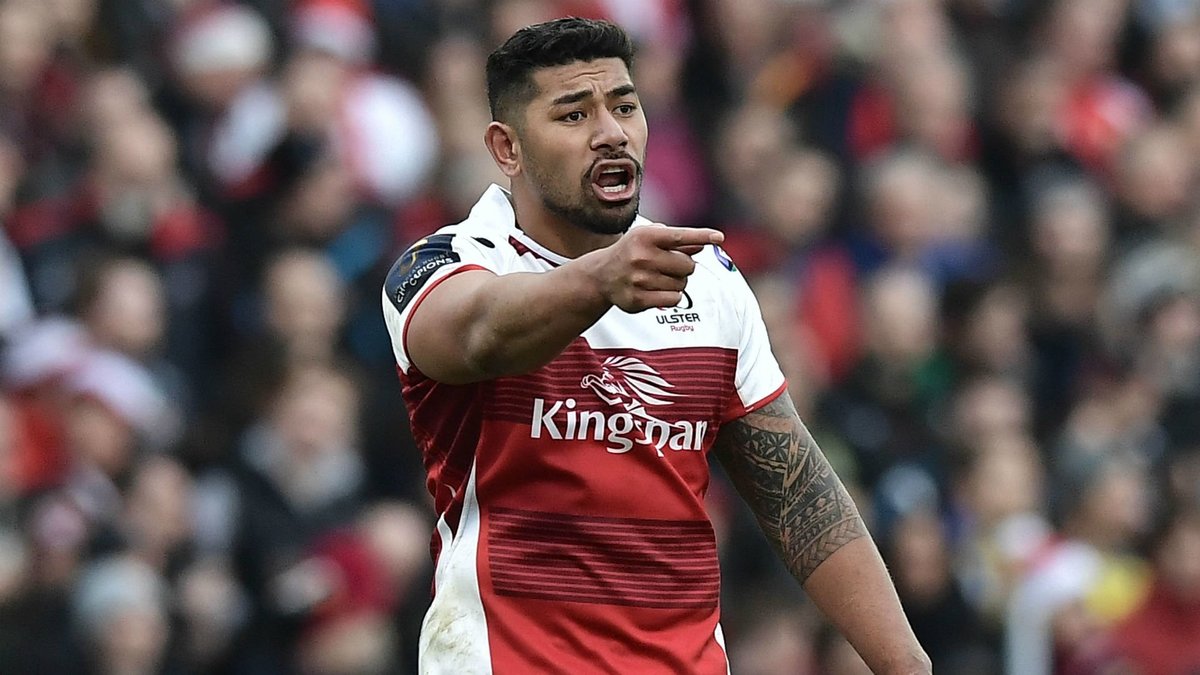Late last week it was announced that Charles Piutau’s much celebrated move to Ulster will be considerably shorter than the Belfast side would have liked.
In a shock move, newly relegated Bristol have captured the signature of the former All Black, though not until the 2018/19 season.
Already earning a reported £600,000 a year as the best-paid back three player in the world, reports have put Piutau’s new salary somewhere around the £1million mark, which could make him the richest player in the world depending on other moves between now and then. Plenty will be written declaring the move bad for the Pro 14, for all clubs and for rugby as a whole. These are fair comments, but it’s also worth considering the negative effects this situation is likely to have on the players themselves.
It’s hard to feel sympathy for the likes of Piutau and Dan Carter, earning lucrative pay cheques for chucking a bit of leather about, but looking at the bigger picture reveals some worrying signs for other players. I wrote a few days ago about the dangers of elevating individuals to superstar status at the expense of everyone else, so I don’t want to retread old ground with this one.
However with financial stability in rugby union still some way off, it can’t be ignored that Bristol are taking a big risk by splashing the cash in such a fashion. If this gamble fails to pay off it won’t be the likes of Piutau, Ian Madigan and Steven Luatua that suffer, but the smaller names and up and coming players that’ll be first on the chopping block.
This strategy may well work out for Bristol. They’ve invested heavily in facilities and players and have as good a chance as anyone of “doing an Exeter” and going from a Championship side to top-flight contenders in the next few years. But the players currently at the club are going to have a hard time breaking into the side if the player in front of them in the queue is being paid Kanye West-money, even if that player is out of form.
Even if we ignore the potential problems signings like these have for the clubs they go to, they nonetheless have repercussions elsewhere. Salaries, pretty much as a rule, only go in one direction. If Maro Itoje gets his rumoured £1million+ deal when he signs his next contract, what does the next superstar get? And the one after that? There’s big money in rugby, but nowhere near enough to sustain that.
Whilst increasing wages seem at first glance like they’re great for the players and a necessary evil for everyone else, it could be argued that the power dynamic isn’t quite as clear cut as all that. If a club is paying a player through the nose, they’re going to want to bleed every penny out of them to get the best return on investment. We’ve already questions being raised about Northampton’s treatment of George North’s concussion problems, testament to how desperate clubs are to keep their highest paid players on the field, and when players are bringing in huge stacks of cash it makes it much harder for them to argue against unfair playing conditions.
It’s telling that in all the controversy surrounding the global rugby calendar and other player disputes, poor pay is rarely if ever discussed as an issue, at least in the top flight game. Instead, the RPA has argued against an increasingly packed calendar and poor welfare support. Very few players have complained about not being paid enough, because they are instead focusing on addressing the real issues that affect them day to day. Rising wages serve as a convenient smokescreen to mask the increasingly harsh demands the modern game puts on players.
Where wages are an issue is in the lower leagues of the game. Given the struggles even Championship players face, it’s incredibly hard to justify the more lucrative contracts we’re seeing nowadays.
It’s not that Bristol should be sharing their wealth with their fellow Championship contenders, but that huge investment like this represents a mindset that focuses only on the immediate future rather than long-term.
Clubs like Doncaster and Jersey cannot hope to match these enormous sums anytime soon. What this means is that whilst Bristol might see some short term returns from their investment, they’re only serving to widen the chasm between the haves and the have-nots. The poorer clubs will be forever playing catch up, assuming they can stay afloat at all.
This removes a vital part of the infrastructure of the professional game. Lower league clubs should be seen as opportunities for new players to grow and develop before stepping up into an increasingly competitive top division.
It makes perfect sense that there should be more money in the Premiership than the lower leagues, but if the only way to survive as a rugby player is to attach yourself to a club with a sugar daddy we’ll end up with lots of players on unsustainably large wages and a load more on nothing.
Few people will begrudge the likes of Piutau for trying to capitalise while the money’s good. Rugby careers are short and players are trying to maximise their earning potential in order to provide for their families.
But in amongst all the talk decrying player greed or the problems clubs will have adapting to the increased demands of agents, we should spare a thought for the players at the lower end of the financial totem pole. There’s a difference between trickle-down economics and standing on top of a cliff and taking a whizz onto the plebs below.
























































































